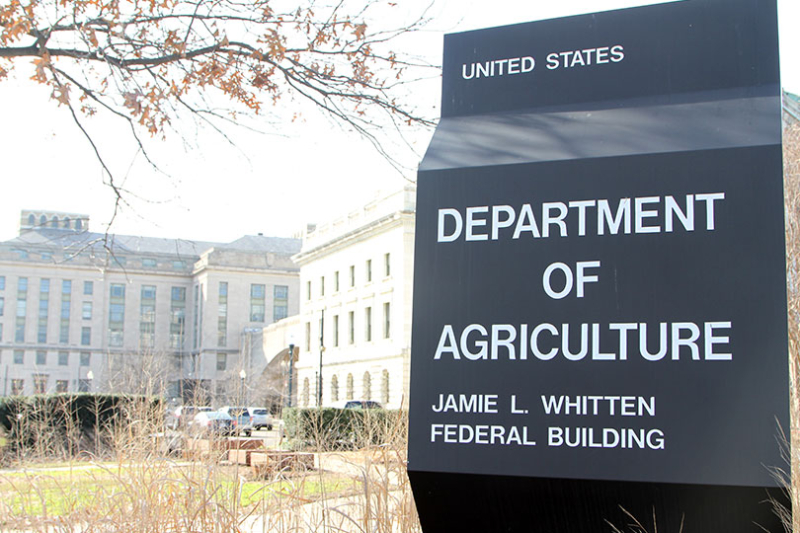By Jennifer Whitlock
Field Editor
A proposed rule by the Trump administration to move regulation of biotechnology animal products under the U.S. Department of Agriculture’s (USDA) oversight is now reopened for public comment.
USDA’s Animal and Plant Health Inspection Service and Food Safety and Inspection Service agencies chose to reopen and extend the comment period until May 7 after critics said a January memorandum of understanding (MOU) signed by then-U.S. Secretary of Agriculture Sonny Perdue and Public Health Service Director Adm. Brett Giror was not supported by the U.S. Food and Drug Administration (FDA).
FDA Commissioner Stephen Hahn reportedly refused to sign the January MOU, later tweeting the agreement did not have the backing of FDA.
In 2017, FDA released the Plant and Animal Biotechnology Innovation Action Plan, saying it would share animal agricultural biotechnology regulation authority with USDA. Under this approach, FDA treats genetic modifications or alterations in animals as new animal drugs.
But many agricultural organizations criticized the joint approach, citing FDA’s slow approval process and regulatory framework as overburdensome and lengthy.
Since biotechnology became possible, FDA has only approved two animals bioengineered for food: AquaAdvantage salmon and GalSafe pigs. The salmon took 20 years to receive FDA clearance.
The decision to move authority solely to USDA is welcomed by agricultural groups, including American Farm Bureau Federation (AFBF), who co-signed a public comment with American Sheep Industry Association, National Milk Producers Federation, National Pork Producers Council and National Turkey Federation.
“The USDA proposal to regulate agricultural applications of animal genetic technology under the Animal Health Protection Act, the Federal Meat Inspection Act and the Poultry Products Inspection Act offers a solid legal and scientific foundation upon which to establish a regulatory system for genetic engineering in livestock species for agricultural uses, allowing USDA to bring its considerable expertise and authority to bear in this sector,” the groups wrote. “The proposal recognizes that although the previous, guidance-based approach under the Federal Food, Drug, and Cosmetic Act was not ideal for regulating genetic engineering of livestock for agricultural uses, the FDA still has a role to play in regulating this technology in non-livestock species, as well as in livestock species for non-agricultural purposes.”
Comments can be submitted through May 7.

